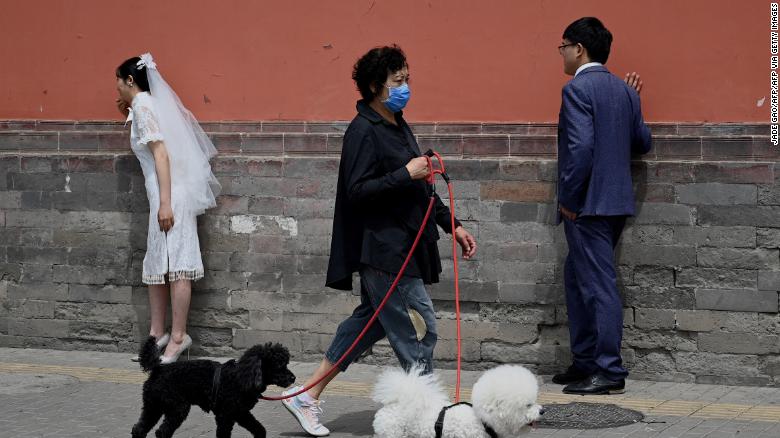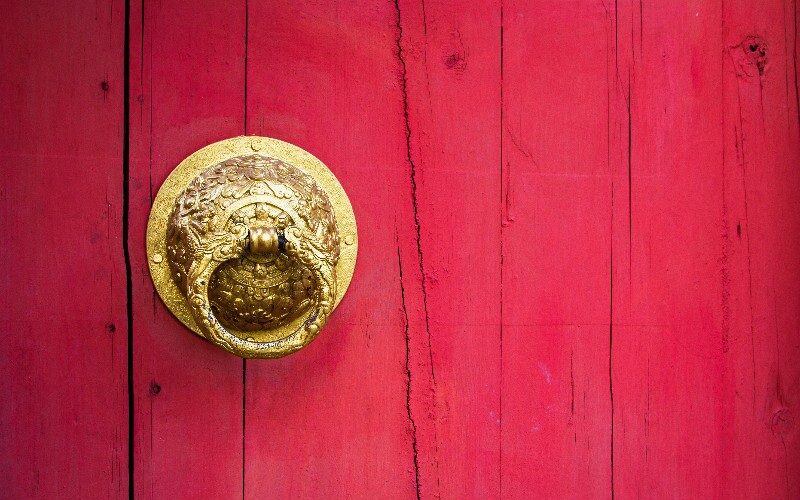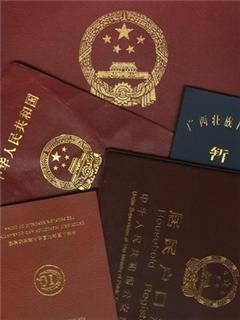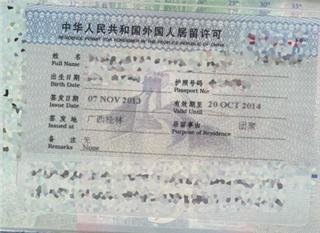Divorces fall 70% in China after government orders couples to cool off
A woman walks her dogs past a couple posing for wedding photographs in Beijing on May 16, 2021.
Hong Kong (CNN)The number of divorces recorded in China has fallen by more than 70% since the introduction of a mandatory "cooling-off" period earlier this year.
According to statistics released by the country's Ministry of Civil Affairs, 296,000 divorces were registered in the first quarter of 2021, compared to 1.06 million in the final quarter of last year -- a drop of 72%. There was a nearly 52% drop year-on-year, from 612,000 in the first quarter of 2020.
Under a new Civil Code which came into force on January 1, couples filing for divorce must wait 30 days after submitting their application, during which time either party can withdraw the petition. They must then apply again after the month is up in order for the marriage to be ended.
The law, based on local legislation already in force in several parts of the country, was widely criticized as hampering personal freedoms and potentially trapping people in unhappy or even violent marriages. But supporters in state media defended it as "ensuring family stability and social order."
Divorces have been steadily increasing in China over recent years, due in part to reduced social stigma and greater autonomy for women, with wives instigating more than 70% of divorces, according to the All-China Women's Federation.
Read More
This had sparked alarm among some policymakers, the trend coming as authorities encourage people to have more children in order to head off a potential demographic time bomb.
"Marriage and reproduction are closely related. The decline in the marriage rate will affect the birth rate, which in turn affects economic and social developments," Yang Zongtao, an official with the Ministry of Civil Affairs, said at a news conference last year.
"This (issue) should be brought to the forefront," he said, adding the ministry will "improve relevant social policies and enhance propaganda efforts to guide the public to establish positive values on love, marriage and family."
The cooling-off period is a key part of this push, as well as incentives for people to marry and for women to have children rather than work. Last year, there were reports of couples rushing to divorce before the cooling-off period came into force.
China is not the only country to have such a cooling-off period -- both France and the United Kingdom make couples seeking a divorce by mutual consent wait between two and six weeks respectively for their marriage to be ended. Chinese officials have defended the rules as preventing "impulsive" divorces, pointing out that in the case of domestic violence parties can still sue for divorce in court.
However, this option is far more time consuming and expensive than filing for dissolution of the marriage with the government. A 2018 report by China's Supreme People's Court found about 66% of divorce cases were dismissed on the first hearing.
"Very few divorce cases can be approved in the first trial," Chen Jiaji, a Shanghai-based divorce lawyer, told local outlet Sixth Tone last year. "Divorce cases usually last for at least six months, while more complicated cases could last one or two years."
Multiple reports have attested to the unpopularity of the cooling-off period, seen by many as a needless curtailing of personal freedoms only gained relatively recently in much of China. After a woman in Hubei province was reportedly murdered by her husband in January this year, some accounts online linked her death to the cooling-off period.
There was a concerted backlash this week to plans by two local authorities to suspend divorce registrations entirely on May 20, one of several dates known informally as "Chinese Valentine's Day."
Officials in Hunan and Guizhou provinces had said they would not permit new divorces on the date -- which sounds similar to "I love you" in Mandarin and has become a popular occasion for couples to celebrate -- but reversed course after widespread complaints online, state media reported.
China allows three children in major policy shift
image copyrightEPAimage captionIt comes after a once-in-a-decade census showed that China's population grew at its slowest pace in decades
China has announced that it will allow couples to have up to three children, after census data showed a steep decline in birth rates.
China scrapped its decades-old one-child policy in 2016, replacing it with a two-child limit which has failed to lead to a sustained upsurge in births.
The cost of raising children in cities has deterred many Chinese couples.
The latest move was approved by President Xi Jinping at a meeting of top Communist Party officials.
It will come with "supportive measures, which will be conducive to improving our country's population structure, fulfilling the country's strategy of actively coping with an ageing population and maintaining the advantage, endowment of human resources", according to Xinhua news agency.
But human rights organisation Amnesty International said the policy, like its predecessors, was still a violation of sexual and reproductive rights.
"Governments have no business regulating how many children people have. Rather than 'optimising' its birth policy, China should instead respect people's life choices and end any invasive and punitive controls over people's family planning decisions," said the group's China team head, Joshua Rosenzweig.
Also, some experts were sceptical of the impact.
"If relaxing the birth policy was effective, the current two-child policy should have proven to be effective too," Hao Zhou, a senior economist at Commerzbank, told Reuters news agency.
"But who wants to have three kids? Young people could have two kids at most. The fundamental issue is living costs are too high and life pressures are too huge."
On a rainy, bleak day in Beijing I was out buying a coffee when the news broke.
People started looking down at their phones as they beeped and whirred with the headline flashing across their screens - China to allow couples to have three children.
This is big news in a country which didn't start suddenly producing more babies when the one-child policy eased off to two.
In fact, many are asking how a three-child policy might mean more children when the two-child version didn't and why birth restrictions have remained here at all given the demographic trend.
Very good questions.
One thought is that, among those prepared to have two children, at least some parents will have three.
However, I have interviewed many young Chinese couples about this subject and it is hard to find those who want bigger families these days.
Generations of Chinese people have lived without siblings and are used to small families - affluence has meant less need for multiple children to become family-supporting workers, and young professionals say they'd rather give one child more advantages than spread their income among several kids.
What did the census say?
The census, released this month, showed that around 12 million babies were born last year - a significant decrease from the 18 million in 2016, and the lowest number of births recorded since the 1960s.
The census was conducted in late 2020 - some seven million census takers had gone door to door to collect information from households.
Given the sheer number of people surveyed, it is considered the most comprehensive resource on China's population, which is important for future planning.
It was widely expected after the census data results were released that China would relax its family policy rules.
'Too many big pressures'
By Kerry Allen, China Media Analyst
China's leading media are giving a lot of fanfare to the "three-child policy".
Newspaper People's Daily, broadcaster CCTV and news agency Xinhua are all posting happy cartoon images of children today on their social media pages and saying that the new policy has "arrived".
It is already the top talking point on popular social network Sina Weibo - posts mentioning the new policy have already racked up tens of thousands of views, and hundreds of thousands of comments.
More than 180,000 users have commented on Xinhua's upbeat post, and the ones with the most likes do not look upon the policy kindly.
"There are too many big pressures in life at the moment," one user says, "Young people are not willing to have kids."
Many talk about modern day "workplace dilemmas" for people leaving on maternity/paternity leave and there not being even "the most basic reproductive benefits".
And with a shrinking labour market, young Chinese people today accept that they have to work longer hours. Overtime and overwork are endemic.
More women meanwhile are choosing to pursue further education and employment, rather than settle down early to start a family.
What were China's previous policies?
The government's move in 2016 to allow couples to have two children failed to reverse the country's falling birth rate despite a two-year increase immediately afterwards.
Yue Su, principal economist from The Economist Intelligence Unit, said: "While the second-child policy had a positive impact on the birth rate, it proved short-term in nature."
China's population trends have over the years been largely shaped by the one-child policy, which was introduced in 1979 to slow population growth.
Families that violated the rules faced fines, loss of employment and sometimes forced abortions.
The one-child policy also led to a severe gender imbalance in the country. The traditional preference for male children led to large numbers of girls being abandoned or placed in orphanages, or cases of sex-selective abortions or even female infanticide.
"This poses problems for the marriage market, especially for men with less socioeconomic resources," Dr Mu Zheng, from the National University of Singapore's sociology department, said.
Can China lift birth restrictions entirely?
Ahead of China's latest census, experts had speculated that birth restrictions might be lifted entirely - though it appears as though China is treading cautiously.
But others said that such a move could potentially lead to "other problems" - pointing out the huge disparity between city dwellers and rural people.
As much as women living in expensive cities such as Beijing and Shanghai may wish to delay or avoid childbirth, those in the countryside are likely to still follow tradition and want large families, they say.
"If we free up policy, people in the countryside could be more willing to give birth than those in the cities, and there could be other problems," a policy insider had earlier told Reuters, noting that it could lead to poverty and employment pressures among rural families.
Experts had warned that any impact on China's population, such as a decline, could have a vast effect on other parts of the world.
Dr Yi Fuxian, a scientist at the University of Wisconsin-Madison, said: "China's economy has grown very quickly, and many industries in the world rely on China. The scope of the impact of a population decline would be very wide."
A Traveller's Guide to Chinese Law
From when you first apply for your visa, it is clear that the law in China is complicated. You may find yourself jumping through unexpected hoops, being told of restrictions to your travels, being cautioned about registering your address within 24 hours of arrival in the country, and many another strip of red tape that needs tearing off before you can get your journey underway. The first-time visitor arrives expecting to find a well-regimented society with everyone behaving punctiliously to stay on the right side of the authorities with so many laws in place. It can come as quite a shock, then, to land at the airport and see the chaos that often exists. What's going on, and how are you supposed to behave here to stay on the right side of Chinese law?
"A Nation of Laws, Not a Nation of the Rule of Law"
"A nation of laws, not a nation of the rule of law" is how China is often described. This is nowhere more evident than on the roads. You may find yourself in a taxi which overtakes a traffic police vehicle by driving past it on the hard shoulder of a highway. Overloaded vehicles, sometimes so overloaded as to appear comical in their instability, are a common sight. When trying to cross a busy street at a well-marked crossroads, ignored by the drivers, dodging silent-but-deadly electric bikes going the wrong way or even driving on the sidewalk, you may think China has no road regulations whatsoever.
The reality is that Chinese laws of the road are much the same as anywhere else. The laws exist, but they're rarely enforced. It sometimes seems that the traffic police exist to clear up after accidents rather than trying to prevent them, as an ostentatious traffic police outpost on a busy and dangerous corner seems to have no effect whatsoever on the erratic driving of those who pass it by.
You're unlikely to see a police officer on patrol. When you do see one, he'll very likely be active, clearing vendors from the pavement for example; but return the next day and you'll find the vendors back again as if nothing had happened.
How To Behave
The Chinese people seem to have an instinct for what to do and what not to do, which laws to break and which to obey, but what about you? You have entered the country faithfully promising to obey all Chinese laws, but you're reasonably sure you don't know what most of them are, those you know often seem impossible to obey, and the locals don't seem bothered about the law anyway. What should you do to get it right?
Well first, don't panic. You're unlikely to get into trouble in China if you behave decently and use your common sense. Let your own sense of personal and moral responsibility be your guide. Provided you don't upset anyone, you're very unlikely to get into trouble. However, be on your best behavior at all times. If you do upset someone, it's almost certain you're breaking some law or another, even if it has nothing to do with the upset you've caused. That's one of the secrets of the Chinese law from the point of view of social control. If you become an object of irritation for the authorities, they'll almost certainly find something to charge you with. It's best, therefore, to stay out of trouble.
However, life is never so simple, and there are some areas of Chinese law in which you should be particularly wary.
Staying Out of Trouble
Some of the laws are best obeyed as best you can, and we're here to guide you through some of the major pitfalls. Some of these you may find difficult at times. Others may be common sense, but in China you need to be particularly wary.
To make things still more complicated, laws are variably enforced from city to city, town to town, even village to village. You are at the whim of local officials who may not be punctilious about everything, but are likely to be punctilious about something unexpected. Do not assume that because everything was fine in one town, it will be fine in the next.
Carry your Passport at All Times
This may not always be easy. You're about to go white-water rafting and don't want to risk losing it, perhaps. If so, it may be best to carry a photocopy of your visa, and of your passport's identification page. If these get ruined it's not a big problem. Make sure your passport is securely kept in the hotel safe for ready access should identification be demanded of you. You may go for years in China and never be asked for identification; you may be unlucky and be asked for identification on your first day here. It is better to be safe than sorry. Failure to produce your passport when demanded or to provide reasonably ready access to it with good reason for not having it on your person can lead to time-consuming administration at a local police station.
Register your Place of Residence within 24 Hours
This can be one of China's most frustrating laws for foreigners. If you stay overnight anywhere, you are supposed to go through the time-consuming procedure of registering your presence. The registration will serve you until you leave again, but you will be required to repeat the procedure if some detail or another changes - for example, your address, or a visa-renewal. If you're travelling around and staying at hotels, the procedure is taken care of by the hotel itself when you register with them. However, stay with a friend and things become more complicated. You will require proof of your host's own residence, his or her identity card, your passport, perhaps a photograph, perhaps further documentation beyond even these.
To make things still more interesting, it's rare that the one place you can register, (there usually is only one place in any town you may visit), is anywhere obvious or readily accessible. It is likely to be lost up some back street miles from the center, and finding it is unlikely to be easy.
The best thing to do is to make a reasonable effort to get the job done within 24 hours, particularly if you're going to be staying in that place for any length of time. That may require some preliminary research on your part. If possible, try to locate the PSB (Public Security Bureau) office where you must register in advance. Bring a Chinese-speaking companion with you. If you can't register within 24 hours, be prepared to apologise profusely for not having done so and to demonstrate that you have indeed made an effort.
Again, please remember that this is not necessary if you are staying in a hotel. The problem only arises should you spend time in a private residency.
China Foreigner Residence Permit
Do Not Let your Visa Expire
Penalties for this can be particularly harsh financially. You also run the risk of being held indefinitely in one of China's new naughty foreigner centers, (with cells for guests rather than five-star suites), until your deportation can be arranged. If some circumstance arises whereby you envisage your visa's expiration, go to your nearest visa office and explain the situation to them immediately. Be sure you have a good reason for having left renewal so late. You may find the officials very cooperative if you demonstrate genuine remorse. The people charged with enforcing the law can be very sympathetic, given they know better than most how onerous the laws can be.
Restricted Hotels
This is a law you will not be permitted to break should it be enforced, and is being mentioned here as a warning rather than as something not to do. Chinese laws tend not to be repealed when outdated; rather, they fall into neglect. Still on the books, however, they can be revived unexpectedly, and one such, hearkening back to earlier days, is hotel restrictions for foreigners. The chances are you will not even know this law exists in your travels given that it has been increasingly neglected in the past ten years or so, but every now and then some local official decides, for whatever reason, to revive it. This may not only happen in small towns, it may also happen in some of the larger cities. If you find yourself being turned away from hotel after hotel after hotel somewhere, be patient with the hoteliers; they would probably love to have your custom. When it becomes apparent that something is wrong, all you can reasonably do is head for the city centre and some of the larger - and more expensive - hotels. These are usually officially licensed to take foreign guests.
Restricted Military Areas
Military areas and establishments can pop up entirely unexpectedly. The signs to show you are entering one are rarely conspicuous. They may not be in English. There may even be no signs at all. You may find yourself walking in the midst of pleasant country scenery and find a military officer approaching you with a scowl. There's not much you can do if that happens save be polite and patient and trust him to get some English-language assistance (eventually), so you may explain the innocence of your mistake.
One hard-and-fast rule. If you see an establishment that is clearly military in nature, (marked out by soldiers on guard at the entrance even though there may be no sign in English to confirm why they are there), do not, under any circumstances, point your camera at it. Simply pretend you haven't noticed and walk on.
You will need a Military Permit to enter certain areas of Nagqu, Ngari, and Nyingchi in Tibet.
Entering and Leaving China
Be very careful what you have in your baggage. Above all, be wary not to leave your baggage anywhere it may be tampered with so you become an unwitting courier and do not assist anyone with their baggage through customs. Areas of particular concern include:
- Recreational drugs
- : It may be that your own country is tolerant of these. China has zero tolerance, and there are particularly stiff penalties for drug importation, up to and including execution.
- Wildlife and wildlife products
- : Again, be wary about souvenirs. If you are found to be in possession of the product of a protected species of Chinese wildlife, (let alone one of the actual critters nestled in a suitcase), penalties again may be particularly harsh.
- Antiquities
- Unfavorable reading matter
: Any material deemed less than favorable towards China or the Chinese government is liable to be confiscated. It will probably be no more than a nuisance, though that's bad enough; reading matter in China isn't always readily available. However, but the official who confiscates it may view you as an unfavorable influence to be letting into the country and decide to turn you back.
And Finally...
Friendly Chinese
If this all seems a little alarming, don't be too concerned. The vast majority of foreign visitors to China have a very pleasurable stay and no difficulty whatsoever with the authorities. Be careful, and you should have a carefree trip.







